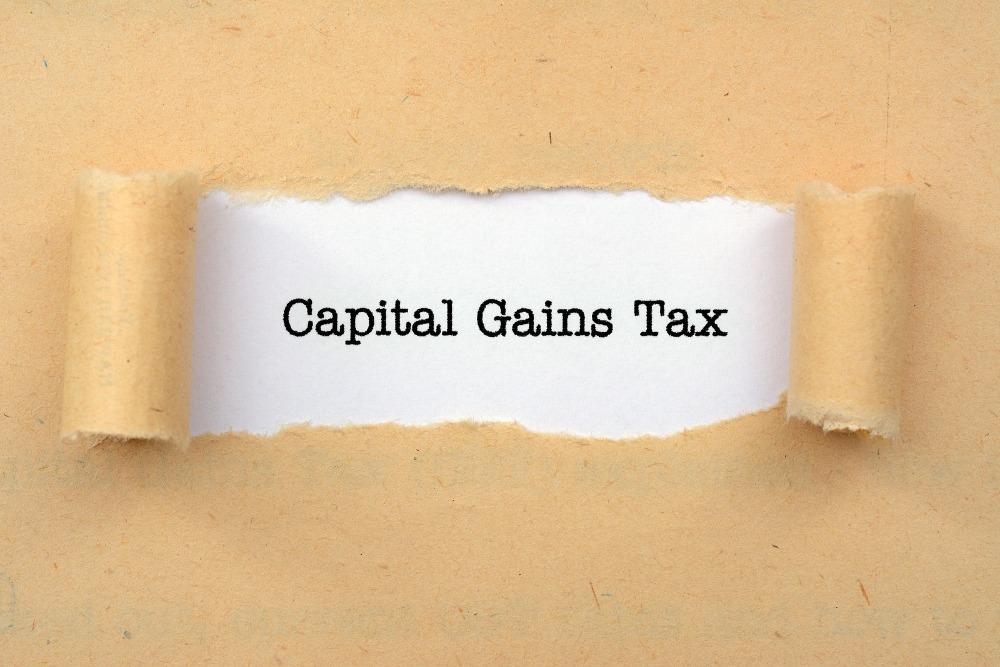The article “A Quick and Easy Primer On Capital Gains Tax” was originally published on MoneySense on January 10, 2017.
How capital gains tax works with a TFSA, plus other need-to-know info.
Q: Can I save capital gains tax by putting money into a TFSA?
Do I have to pay capital gains tax if I sell one investment to buy another investment?
—M
A: I have had a couple of questions lately about selling one investment and buying another to avoid capital gains tax, M. Given the end of the year and the upcoming income tax season, I figure it’s a good time for a primer on capital gains tax.
Capital gains tax applies when you sell a taxable investment for a higher price than what you paid for it. There are some notable exceptions that I will address.
When you buy a stock in a non-registered, taxable investment account, your cost for tax purposes is your original investment. It’s called your adjusted cost base or ACB. If you buy more shares in the future, that pushes up your cost for all of the shares.
If you sell some or all of the shares, the average cost for all the shares accumulated to that point is your cost for tax purposes. Any transaction costs to sell reduces your sale proceeds and therefore your capital gain. Likewise, any transaction costs to buy push up your tax cost.
If you buy foreign stocks, like U.S. stocks, the tax cost is the cost converted to Canadian dollars at the time of purchase. The proceeds are based on the foreign exchange rate at the time of sale.
The same logic applies to exchange-traded funds (ETFs), bonds and mutual funds. Mutual funds may have reinvested distributions, so your tax cost can rise over time as income is reinvested into new fund units.
Real estate is subject to capital gains tax unless you claim a principal residence exemption (PRE) on a qualifying home. So rental properties, cottages, vacation properties, etc. may be subject to capital gains tax if they don’t qualify or you don’t elect to treat them as your principal residence – even if they’re in another country. Remember, Canadian residents are subject to worldwide taxation on their income.
2) Real estate used primarily for earning business income, though rental properties are specifically excluded.
If replacement property is acquired within a specified timeframe in the above two cases, the capital gain can be deferred until the sale of the replacement property.
Many Canadians get confused, M., because the U.S. has “like-kind exchange” rules that allow you to defer capital gains on the sale of a property, like a rental property, if a similar replacement property is purchased. This is an important lesson for Googlers looking for financial advice – be careful, because it’s easy to stumble upon U.S. advice that doesn’t apply to you.
There are capital gains exemptions in Canada for the sale of Qualified Small Business Corporation (QSBC) shares, qualified farm properties and qualified fishing properties. The exemption for QSBC shares – Canadian private company shares subject to certain conditions – is $835,715 for 2017. Qualified Canadian farm and fishing properties have a $1,000,000 exemption.
A common misconception is that capital gains tax can be reduced or avoided by transferring an investment to a family member at a low valuation. These transfers are generally deemed to occur at fair market value (FMV), with capital gains tax payable accordingly.
If you transfer an investment into a Tax-Free Savings Account (TFSA) or Registered Retirement Savings Plan (RRSP), this counts as a contribution. However, if the investment has gone up in value, the disposition of the investment is considered a capital gain and will attract tax. A capital loss on disposition, on the other hand, is not tax-deductible.
Once an investment is in a TFSA, M., any income or capital gains thereafter are entirely tax-free. Withdrawals are also tax-free. TFSAs are all about tax-free returns, so they’re a sure-fire way for you to avoid capital gains tax.
Income and capital gains earned in an RRSP, while not taxed as earned, will ultimately be taxed indirectly when you take withdrawals from your RRSP. Withdrawals are fully taxable as income on your tax return.
In summary, there are ways to avoid capital gains tax, M., but for most people, reinvesting the proceeds isn’t enough. TFSAs provide the easiest option and as the cumulative TFSA room for Canadians continue to grow – $52,000 since 2009 – these accounts will continue to be the most common source of Canadians’ tax-free capital gains.
Jason Heath is a fee-only, advice-only Certified Financial Planner (CFP) at Objective Financial Partners Inc. in Toronto, Ontario. He does not sell any financial products whatsoever.

